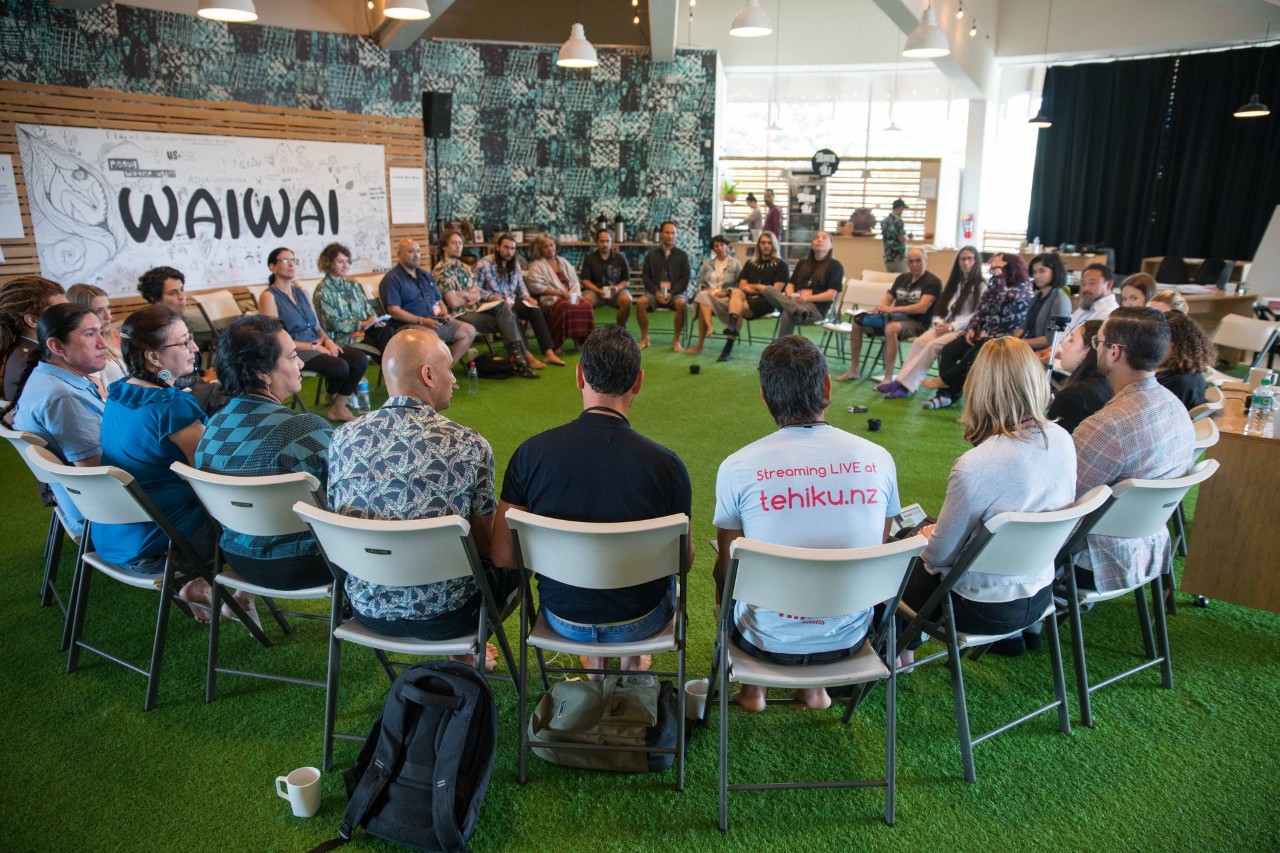Concordia-led artificial intelligence research team awarded grant totalling nearly $23 million
 Jason Edward Lewis: “The plan is to explore a more extensive spectrum of intelligent human and non-human behaviours that we use to make sense of the world.”
Jason Edward Lewis: “The plan is to explore a more extensive spectrum of intelligent human and non-human behaviours that we use to make sense of the world.”
Concordia professor Jason Edward Lewis and colleagues have been awarded a New Frontiers of Research Fund Transformation grant worth almost $23 million. Lewis is co-leading an international, interdisciplinary team of experts that will be exploring how Indigenous communities and artificial intelligence (AI) scientists can mutually benefit by augmenting the frameworks of Indigenous knowledge with innovative AI technologies.
The project, Abundant Intelligences: Expanding Artificial Intelligence through Indigenous Knowledge Systems, will be supported by New Frontiers in Research Fund for six years. The Indigenous-led project involves 37 co-investigators and collaborators, the majority Indigenous researchers and community members.
It also includes eight universities and 12 Indigenous community-based organizations from Canada, the United States and New Zealand.
The research program will be headquartered at Concordia's Indigenous Futures Research Centre, where Lewis is co-director.
AI is the simulation of human intelligence by computer systems. It is becoming the next massive global, technological transformation, considered on par with the invention of the internet and the industrial revolution. As such, the funding for this project is crucially timed.
Lewis is the Concordia University Research Chair in Computational Media and the Indigenous Future Imaginary, and a professor in the Department of Design and Computation Arts. For him, a two-way exchange in which AI experts collaborate with Indigenous communities and learn from their knowledge systems is key to transforming AI into a global force for good.
“The current trajectory of AI development prioritizes Western ways of thinking about humans and our world. Developers see users foremost as individuals who prioritize personal well-being while ignoring vital aspects of human existence such as trust, care and community,” he says.
“We want to expand how we define AI while we build it. The plan is to explore a more extensive spectrum of intelligent human and non-human behaviours that we use to make sense of the world.”
Building abundance into AI development
To counter AI’s current model, the project will use what is known as Abundant Intelligences as a guiding principle.
“We use Abundant Intelligences because ‘abundant’ implies both diversity and knowledge practices that contribute to thriving networks of being in a particular place,” explains Hēmi Whaanga, co-principal investigator and a professor at Te Pūtahi a Toi School of Māori Knowledge at Massey University in New Zealand.
“These practices focus on regeneration, generosity and reciprocity. ‘Abundant’ signals a multitude of potential futures as well as an expansion of the narrow definitions of intelligence.”
A project rooted in integration, imagination and intelligence
Abundant Intelligences will mobilize an international and interdisciplinary team of experts. The teams will coalesce in locally rooted “pods” to collaborate with Indigenous communities. In this way, each team will learn from — and alongside — Indigenous knowledge keepers to bring novel perspectives to transforming AI.
The program is composed of three main axes:
- The Integration Axis explores how Indigenous knowledge practices and frameworks can be synthesized with the mainstream knowledge frameworks used by AI researchers.
- The Imaginaries Axis develops future imaginaries and speculative designs of Indigenous AI to guide the design of novel AI systems better suited to Indigenous flourishing.
- The Intelligence Axis brings Indigenous perspectives to bear on technical challenges currently facing mainstream AI research. It also attempts to better understand ways of translating the full range of human intelligence into machine intelligence.
“Through the New Frontiers in Research Fund competitions, we are fostering world-leading discovery and innovation and encouraging Canadian researchers to take risks, meet new challenges, push disciplinary boundaries and lead transformative projects across the country and abroad,” says Ted Hewitt, Chair, Canada Research Coordinating Committee; and President, Social Sciences and Humanities Research Council.
For Dominique Bérubé, Concordia’s vice-president of research and graduate studies, Abundant Intelligences exemplifies efforts toward decolonizing industry and academia.
“For far too long, Indigenous knowledges have been ignored or dismissed. I applaud Jason and the entire Abundant Intelligences team for receiving this prestigious grant,” she says.
“I hope this serves as a model for future research. I also hope to see Indigenous knowledges applied more broadly here at Concordia and beyond.”